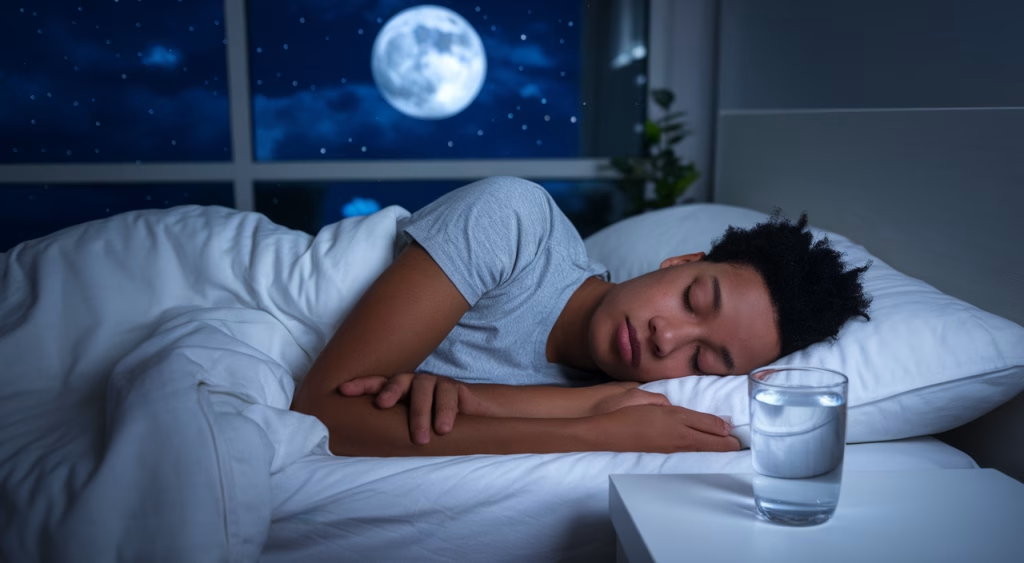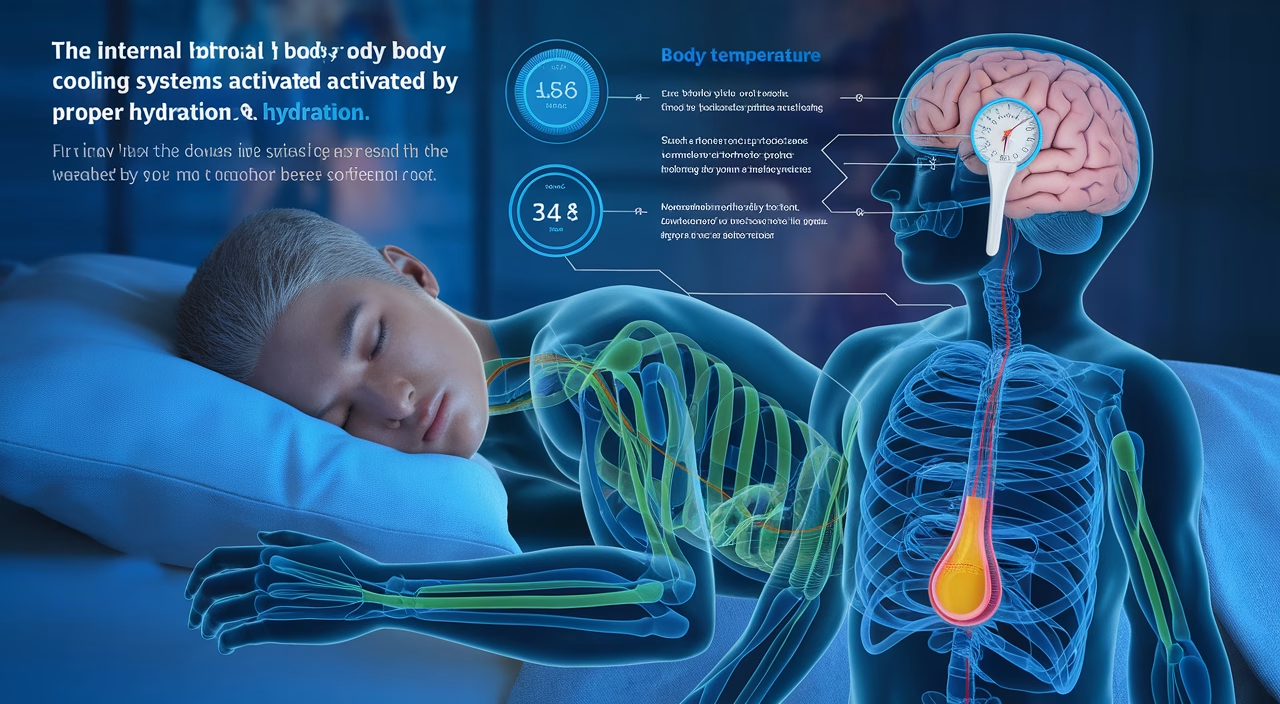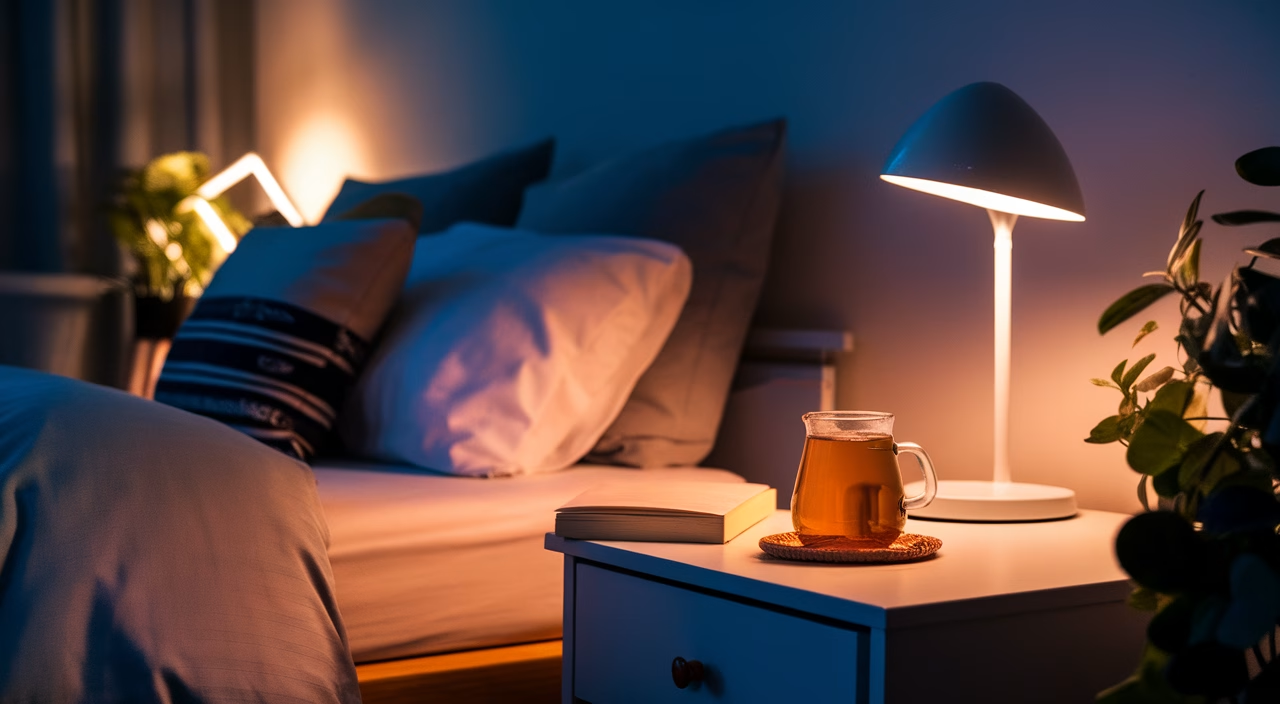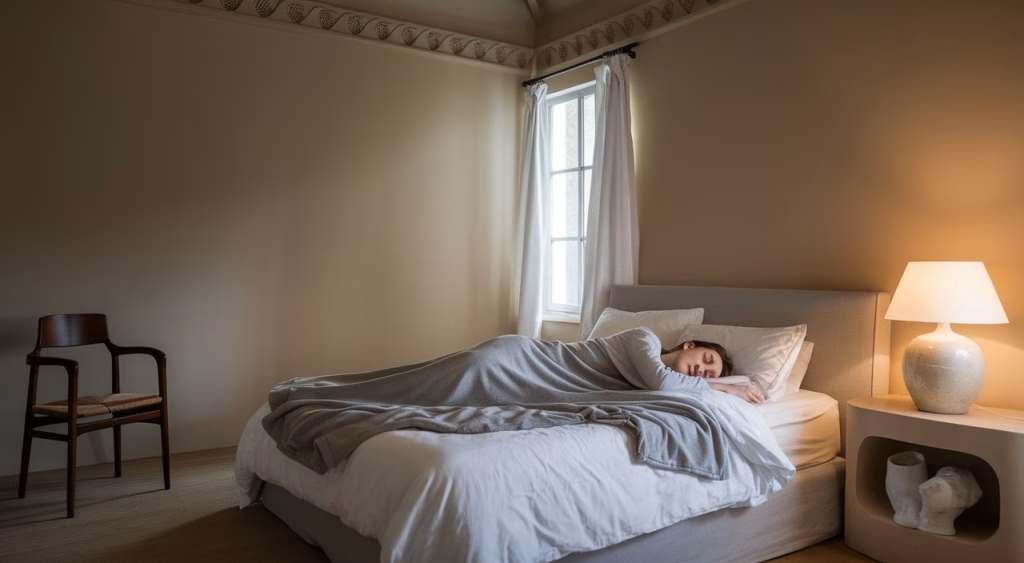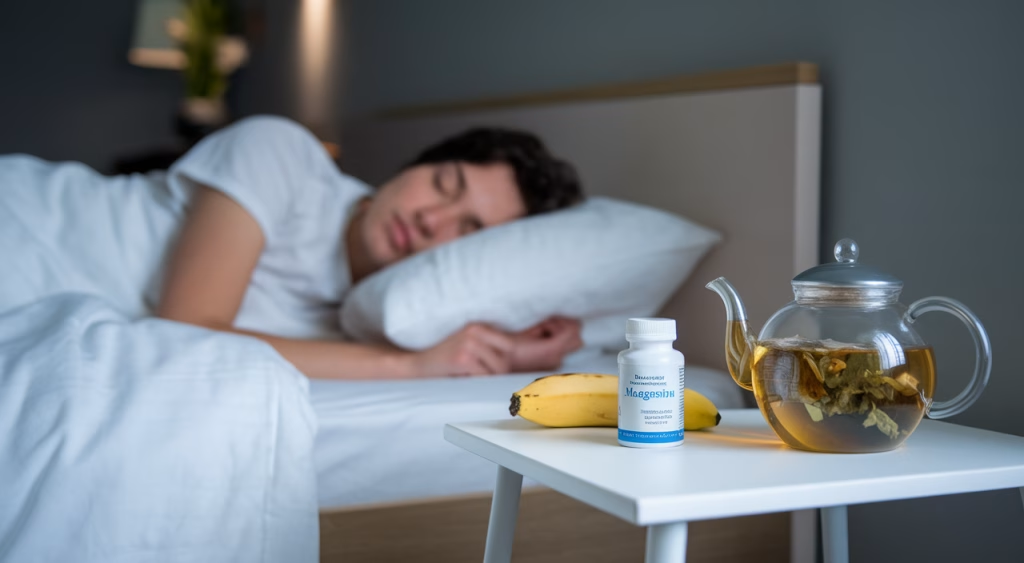Ever Wondered How Staying Hydrated Impacts Your Sleep?
Here’s the truth: there’s a surprisingly strong link between how much water you drink and the quality of your shut-eye. Hydration and sleep aren’t just individually important for overall health — they’re deeply connected, influencing everything from how easily you fall asleep to how well your body regulates temperature overnight.
TL;DR — Summary
- The hydration-sleep connection is real: Staying hydrated helps regulate body temperature and supports your natural sleep-wake cycle.
- Dehydration can damage sleep quality: It may cause dry mouth, muscle cramps, and more nighttime awakenings.
- Hydrating doesn’t mean chugging water before bed: Strategic intake throughout the day is key to restful nights.
- Better drinks, better sleep: Herbal teas and electrolyte-rich beverages can support sleep more effectively than plain water alone.
- Sleep is a hydration-dependent process: From REM cycles to regulating melatonin, water plays a vital role.
The Importance of Hydration for Quality Sleep
Let’s be honest: when most people think of improving sleep quality, they jump straight to noise machines, blackout curtains, or cutting late-night caffeine. Those are great, but too often, we overlook a critical piece of the puzzle — proper hydration.
Your body requires adequate fluids to carry out essential overnight processes like temperature regulation, hormonal balance (especially melatonin), and cellular repair. Water acts as your body’s overnight maintenance crew. When you’re running low on it, that restoration timeline becomes delayed or even disrupted.
Imagine trying to sleep in a stuffy, overheated room — uncomfortable, right? Without proper hydration, your body’s cooling mechanisms struggle, and that’s exactly what your internal environment feels like when dehydration affects your sleep quality.
Understanding the Hydration-Sleep Connection
At the biological level, fluids serve two critical purposes for sleep: they regulate your internal temperature and support neurological communication tied to your circadian rhythm (your internal clock).
When you’re dehydrated, several processes go haywire and directly impact your sleep quality:
- Dry mouth and nose: These can lead to uncomfortable breathing or even snoring, waking you up throughout the night.
- Electrolyte imbalance: Without sodium, potassium, and magnesium in the right ratios, your muscles twitch, spasm, or cramp — all sleep disruptors.
- Thinner blood volume: This reduces oxygen delivery, which can alter your body’s ability to smoothly transition through sleep stages.
Research from Penn State University found that adults who were inadequately hydrated reported shorter sleep durations and more frequent awakenings. The hydration benefits for sleep quality extend beyond just feeling comfortable — it’s about optimizing your body’s natural sleep processes.
Effects of Dehydration on Sleep Quality
Think of dehydration as an invisible alarm clock ticking away under your pillow. Even mild dehydration (as little as 1–2% below normal hydration levels) can significantly disrupt your ability to reach restorative sleep stages.
- Interruptions in the sleep-wake cycle: Dehydration triggers cortisol elevation — the stress hormone that interferes with melatonin production, your body’s natural sleep hormone.
- Overnight urination: Ironically, drinking too little can still cause bathroom breaks at night due to more concentrated urine irritating the bladder lining.
- Reduced REM sleep: Less fluid can disrupt REM cycles, the stage responsible for memory processing and emotional regulation.
Understanding these dehydration effects on sleep helps you recognize why maintaining proper hydration is essential for quality rest.
Practical Tips for Improving Hydration for Better Sleep
Here’s what we often tell clients: good hydration doesn’t happen at bedtime — it happens steadily throughout the day. Chugging water 15 minutes before lights out isn’t just ineffective; it’ll likely send you running to the bathroom at 3 a.m.
Instead, aim for consistency with these proven hydration strategies:
- Front-load your hydration: Drink the majority of your water in the first 8–10 hours of your day to maximize hydration benefits.
- Pair water with meals: This is a natural reminder to sip, and it improves digestion too.
- Check your urine: Light yellow means good hydration; dark yellow? Time to refill that glass.
These simple hydration tips can dramatically improve your sleep quality without complicated routines.
Hydrating Drinks to Enhance Sleep Quality
Not all fluids are created equal when it comes to winding down. While water is vital, certain drinks can boost your hydration and your sleep quality simultaneously. Think of these as “double-duty” beverages that provide hydration benefits while promoting better rest:
| Drink | Benefits |
|---|---|
| Chamomile tea | Hydrating and naturally calming |
| Warm milk or plant-based alternatives | Contains tryptophan, which promotes sleep |
| Coconut water | Packed with electrolytes; gentle on the stomach |
| Lemon water (warm) | Light hydrating boost with vitamin C |
Hydration Strategies for a Restful Night’s Sleep
You don’t need a complicated game plan — just some simple, consistent strategies that maximize hydration benefits for better sleep:
- Hydrate early: Start your day with one or two glasses of water before coffee to support your body’s natural hydration needs.
- Electrolytes for balance: After workouts or hot days, include low-sugar electrolyte drinks to help absorption and maintain optimal hydration.
- Nightly wind-down: An hour before bed, sip (not chug) a calming beverage such as chamomile or warm almond milk.
- Reduce alcohol and caffeine: Both act as diuretics and deplete hydration levels quickly, especially late in the day, affecting your sleep quality.
- Monitor room temperature: Hot environments raise sweat loss. Keep your bedroom cool to reduce overnight dehydration effects.
These hydration strategies work together to support both proper hydration and improved sleep quality throughout the night.
Cost Guide: Staying Hydrated for Better Sleep
| Item | Low-End | Mid-Range | High-End |
|---|---|---|---|
| Reusable Water Bottle | $5–$10 | $15–$30 | $40+ |
| Hydration Tracking Apps | Free | $2–$5 one-time | $5–$10/month |
| Electrolyte Drink Mixes | $0.50/serving | $1–$1.50/serving | $2+/serving |
Conclusion
When it comes to improving sleep quality, hydration isn’t just a background player — it’s center stage. From thermoregulation to muscle repair and hormone production, staying properly hydrated makes the difference between a night of tossing and turning and a night of deep, peaceful rest.
The hydration benefits for sleep quality are undeniable, and the connection between proper hydration and better sleep is backed by solid science. Stay proactive, not reactive. Sip smart during the day, choose your bedtime drinks wisely, and watch how your sleep quality improves night by night. Your body will thank you — and so will your morning mood.
Frequently Asked Questions
Does dehydration make snoring worse?
Yes. Dehydration can dry out mucus membranes in the nose and throat, increasing airway resistance and potentially making snoring worse.
Can drinking too much water before bed interrupt sleep?
Absolutely. Over-hydration can cause frequent urination at night, leading to multiple awakenings that disrupt your sleep quality.
How much water should I drink to improve sleep?
Aim for 8–10 cups daily, spread evenly throughout the day. Adjust based on activity, climate, and diet to maximize hydration benefits.
What are hydrating drinks that help you sleep?
Chamomile tea, warm almond milk, and electrolyte-infused coconut water are excellent options that provide both hydration and sleep quality benefits.
Is it safe to drink water just before bed?
Yes, in small amounts. A few sips of water or a sleep-enhancing herbal tea can be okay just before bed without significantly affecting your sleep quality.
Why do I wake up thirsty at night?
Often due to dry environments, poor bedtime hydration, or excessive alcohol and caffeine earlier in the day that affect your body’s hydration levels.
Do hydration levels affect sleep patterns?
Yes. Dehydration can disturb REM and slow-wave sleep, both crucial for physical and mental recovery, directly impacting your overall sleep quality.

